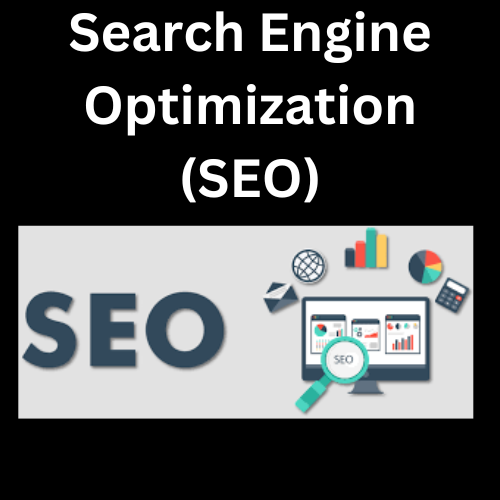In the vast landscape of the digital world, Search Engine Optimization (SEO) is the beacon guiding businesses and content creators to visibility and success. Understanding the nuances of SEO is not just a valuable skill; it’s the key to unlocking the full potential of your online presence. In this comprehensive guide, we will unravel the secrets of Search Engine Optimization (SEO), providing you with the ultimate roadmap to navigate the intricacies of search engine algorithms.

What is Search Engine Optimization (SEO)?
SEO is making your website’s content, structure, and digital plan more search-engine friendly so that you appear higher on search engine results pages (SERPs). The goal is to get a higher organic ranking, bringing in more focused traffic and improving the whole user experience.
Why is SEO Important?

- Conversion Potential: Benefits of higher exposure go beyond just clicks. Higher search engine rankings not only bring in more people but they also might lead to more sales. When people see your website high up in search results, it makes them feel good about your business and want to learn more about what you offer. This leads to higher sales rates and overall business success.
- Brand Authority: If your brand gets a high score on SERPs, it becomes an authority in its field. Users usually think that websites at the top of the list are skilled and trustworthy. By consistently working on SEO, you can build a brand authority that speaks to your target audience and builds trust and love over time.
- Good opinions: Search engine results are often where people get their first opinions. A top place not only makes you seem more trustworthy but it also makes a good first impression. This good impression can affect users’ choices, making them more likely to interact with your material or buy something.
- Competitive Edge: SEO is the best way to get ahead online, with high competition. If you rank higher than your competitors in search results, you get more visitors, and your brand will also become known as the expert in your area. You can use this edge to stay ahead of your competitors and get a more significant market share.
- Improved User Satisfaction: A well-optimized site will make users happier because it improves their user experience, an essential part of SEO. When people visit your site and can easily find what they’re looking for, they’re more likely to stay longer, look at more pages, and interact with your content, which makes the whole experience better for them.

Key Elements of SEO:
1. Keyword Research: Conduct in-depth keyword research to find terms and phrases pertinent to your content or business. The most valuable keywords can be found using tools like SEMrush and Google Keyword Planner.
2. On-Page SEO: Use target keywords in title tags, meta descriptions, headings, and content to optimize specific pages for search engines. Make sure the URL structure is unambiguous and informative.
3. High-quality Content: The foundation of SEO is content. Provide valuable, pertinent, high-quality material that speaks to the user’s intent. Keep content up to date by updating and refreshing it often.
4. Technical SEO: Consider crawlability, mobile friendliness, and site performance. A technically sound and well-organized website improves and give the benefits the user experience as a whole.
5. Backlink Building: Get reputable and pertinent websites to link to you in exchange for high-quality backlinks. Search engines see connections as testimonials.
6. User Experience (UX): Give the user experience (UX) top priority by streamlining site navigation, speeding up page loads, and ensuring the design is device-responsive.
7. Local SEO: By claiming your Google My Business listing, gaining favorable ratings, and offering correct business information, local businesses can improve their search engine ranking.
8. Analytics and Monitoring: Track user behavior, keep an eye on the functionality of your website, and pinpoint areas that need work with tools like Google Analytics and Google Search Console.
Best Practices for Search Engine Optimization (SEO)success:
- Stay Informed: SEO is a dynamic field. Keep up with developing technology, market trends, and algorithm upgrades so you can modify your approach as necessary.
- Quality Over Quantity: Give backlinks and high-quality material precedence over quantity. A small number of excellent content articles and backlinks can make a more significant difference than a large number of average ones.
- Mobile Optimization: Ensure your website is optimized for mobile devices, given the increase in mobile users. Google gives mobile-friendly websites a lot of weight.
- Integration of Social Media: A solid social media presence helps brands be seen and can indirectly boost search engine optimization efforts, even though social signals may not directly impact rankings.
- Activate Your Viewers: Encourage audience participation by leaving comments, sharing, and interacting with them on social media. Loyal followers and consumers are more likely to emerge from engaged users.
